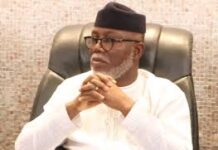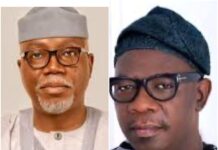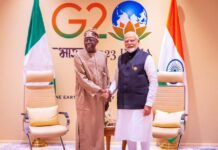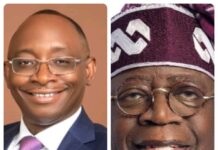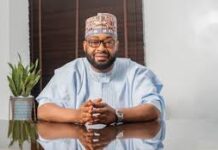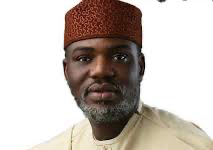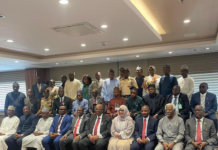10.33trn 2020 Budget: Senate Divided on viability as Members Begin debate
POLITICS DIGEST – The Nigerian Senate got divided on Wednesday over workability or otherwise, of proposals and projections made in the N10.33 trillion 2020 budget during debate on its general principles.
The N10.33 trillion budget proposals were presented to joint sitting of the National Assembly by President Muhammadu Buhari on Tuesday.
Leading debate on the general principles of the budget proposals, the Senate Leader, Yahaya Abdullahi ( APC Kebbi North ) said the budget, going by its proposals and projections, cannot move the country out of the economy doldrums it has been , for the past 30 years.
According to him, the capital budget of N2.14 trillion to GDP ratio is rather too small which is just about 2% of GDP.
He said: ” The injection of this amount is a mere drop in the ocean and is incapable of stimulating the economy to higher growth , wealth creation and employment generation.
“An economic Growth Rate of 2.93% for a population of nearly 200 million, is only marginally above population growth rate at 2.6%, annually. The country’s depending on crude oil exports does not present a bright scenario for Nigeria’s healthy growth.
“The projections of increased Oil Production averaging 2.18 million barreIs/day, in the medium term, are subject to very high risks that have had devastating consequences in recent times. Volatility, both at the international spot market and in the Niger Delta are factors that could make these expectations only tentative.
“The Borrowing Programme, projected at N1.7 trillion, on 60:40 ratio,(domestic:external), could be a good starting point but there are lots of foreign loan sources with reasonable concessionary terms that government should explore to further whittle down the ratio, say to 30:70, in favour of external sources.
“Relating directly to the above is the case of Debt Servicing burden. The logic is self-evident that seeking cheap funds abroad will reduce the burden of borrowing to repay huge domestic debts. This could undermine growth by denying the real sector access to cheap domestic loans. As it stands, the cost of domestic borrowing is becoming too high.
Read Also:
“The continued pursuit of CBN’s restrictive Monetary Policy in the face of a clear economic necessity to reflate the economy, particularly by ensuring cheap money to power the real sector of the economy, is still baffling.
” I have on the floor of this chamber, repeatedly called for the realignment of the country’s monetary and fiscal policies to ensure the right structural momentum in the economy.
” When viewed in terms of per capita, the 2020 Capital Expenditure of N2.46 trillion, is paltry. The pace of funds releases to the MDAs in the 2019 budget is contrary to efforts to strengthen the country’s full recovery from the recent recession.
“The projected high deficit of N2.18 trillion for 2020 is a direct function of the economy-wide revenue shortfalls, as well as the choice and cost of borrowing. Government, particularly the collecting agencies, must improve on their collection capacity. But to do this, there must be robust investments in the real sector so that it could grow to earn taxable revenues.
“Debt service as a Percentage of Capital Expenditure is still high, while debt service as a Percentage of Revenue should be diminishing, only if we dedicate ourselves to raising more revenues by (i) investing in the real sector to grow the economy and boost employment and productivity , (ii) broadening the tax base in order to capture more revenue sources;
(iii) improving our transparency and reduce pilferage by intensifying the drive against corruption; and
(iv} ensuring that there is security for economic operators, both local and foreign”.
While other contributors like the Senate Minority Leader, Senator Enyinnaya Abaribe ( PDP Abia South ), Gabriel Suswam ( PDP Benue North East), George Sekibo ( PDP Rivers East), Olubumi Adetunbi ( APC Ekiti North ) etc, toed the line of the Senate Leader in picking holes in the budget proposals, some others commended the executive for proposals and projections made.
Specifically Senator Jibrin Barau ( APC Kano North), in his contribution , said ” the budget is realistic and will facilitate rapid development across the various sectors .
“This budget in terms of revenue projections and proposals on expenditure , are very realistic and achievable.
“On the template of revenue generation , as lawmakers , we need to join the executive in realising the projected N8.155trillion through thorough oversight functions on all the relevant revenue generating agencies “, he said.
The budget debate continues Thursday as more than 20 senators across party lines , have their readiness to make contributions .






